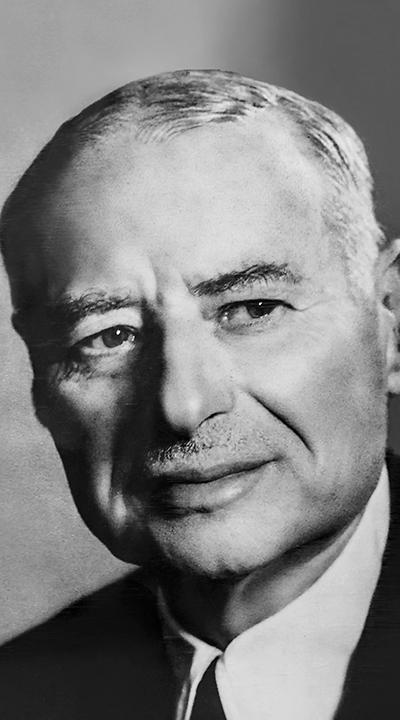
Michael Pnevmatikos was a key figure in the emergence of shipping from the islands of Kassos and Syra (Syros) during the steamship era, as well as a key contributor in efforts to rebuild Greek shipping after the Second World War.
He was born on Kassos in 1883. His paternal grandfather lost the two largest Kassiot ships torched during the 1824 massacre of the island’s inhabitants by the Turks and Egyptians. His father, Yannaki, was a master mariner and owned sailing ships.
Michael Pnevmatikos was sent to the prestigious Robert College in Constantinople, now Istanbul, and thereafter to Syra where he attended the maritime academy. By the age of 23 he had already obtained a master’s certificate.
As shipping underwent a transition from sail to steam, his father teamed up with a brother-in-law, Basil Nicholas Rethymnis, to purchase a first steamer, the 2,800-ton Austro-Hungarian Grazia that was renamed Leonidas after Leonidas Zafiri, the wealthy Istanbul financier who bankrolled the acquisition.
Under Greek flag, the Leonidas enjoyed a boom market and soon the partners had a second, larger steamship, the Straits of Menai, that was renamed Chrysopolis.
The family already had too many captains for a fleet of two ships, prompting the young Michael Pnevmatikos to accept an offer to team up with an old college friend, Leonidas Arvanitidi, scion of the wealthy Arvanitidis industrial and banking family of Constantinople.
The Arvanitidis clan transported oil in drums from Baku in the Russian Empire to Batumi on the Black Sea coast, and from there by ship throughout the Mediterranean. The friends co-founded Byzantine Steamships in Istanbul, with Pnevmatikos acting first as manager of the business and later as a partner.
The new company purchased a number of freighters, but its success was interrupted by the Asia Minor catastrophe of 1922. This saw Byzantine dissolved and its remains transferred to Greece, to where Pnevmatikos, now married and with a baby daughter, returned to start a new life.
The Rethymnis-Pnevmatikos family partnership in the meantime had been able to expand in the wake of the First World War after which ship prices slumped. His relatives had just opened an office in London named Rethymnis & Kulukundis (R&K) and Pnevmatikos was a founding shareholder.
As the market improved again, the partners agreed to create a proper corporate entity. He founded a new company in Syra with his cousins Nikolaos and Minas Rethymnis and brother-in-law Stathes Yannaghas.
A number of freighters were purchased during the next few years and by 1927 the partners formed Kassos Steam Navigation. The same year Kassos ordered two steamers, the Themoni and the Hadiotis, from Northumberland Shipbuilding in the UK, the first newbuildings ever contracted by clients of R&K.
Kassos participated in R&K’s ‘scrap and build’ strategy in the early 1930s, generating cash from selling older vessels to fund new ships including the 9,700-ton Kassos that became the first motorship under Greek flag.
It brought the company’s fleet to eight ships on the eve of the Second World War. Three were among a total of eight client freighters that R&K chartered to Switzerland for a period of eight years, effectively giving them neutrality in the conflict. But another four Kassos vessels were lost. After the war, this sacrifice was recognised as Kassos qualified for three of the Liberty ships made available to Greek owners.
Pnevmatikos elected to stay in Syra during the war when all food had to be handed to the Italian occupiers and famine killed more than 40% of the island’s population, including his brother-in-law Captain Yannaghas. Pnevmatikos did what he could, making soup from greens he gathered from his land and feeding malnourished passers-by.
Besides his own business exploits, Pnevmatikos was widely respected among his compatriot owners as a prudent voice and a trustworthy collaborator. He was legendary in shipping circles for his great memory and encyclopedic knowledge of ships, said to equal or possibly even exceed that of Manuel Kulukundis.
This was reflected in his tenure as president of the Union of Greek Shipowners from 1936 to 1938, and his re-election briefly after the war when he gave up the presidency because he was insufficiently in Greece. He worked tirelessly for the industry during the Metaxas dictatorship, when many barriers were placed in the way of shipping, and in the post-war rebuilding of the fleet. He still holds the record of being the longest-serving board member in UGS history, having been continuously elected for 41 years.
Pnevmatikos was also influential in the effort to acquire US-built Liberty ships as replacements for the fleet at the end of the war. It was he who urged Nicholas Avraam, Greece’s then minister of merchant marine, to go to the US to negotiate as many as possible, despite the reluctance of many Greek owners who were still suspicious of the welded Liberty ships compared with traditional riveted hulls.

